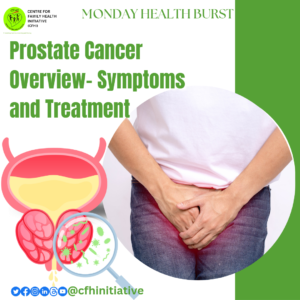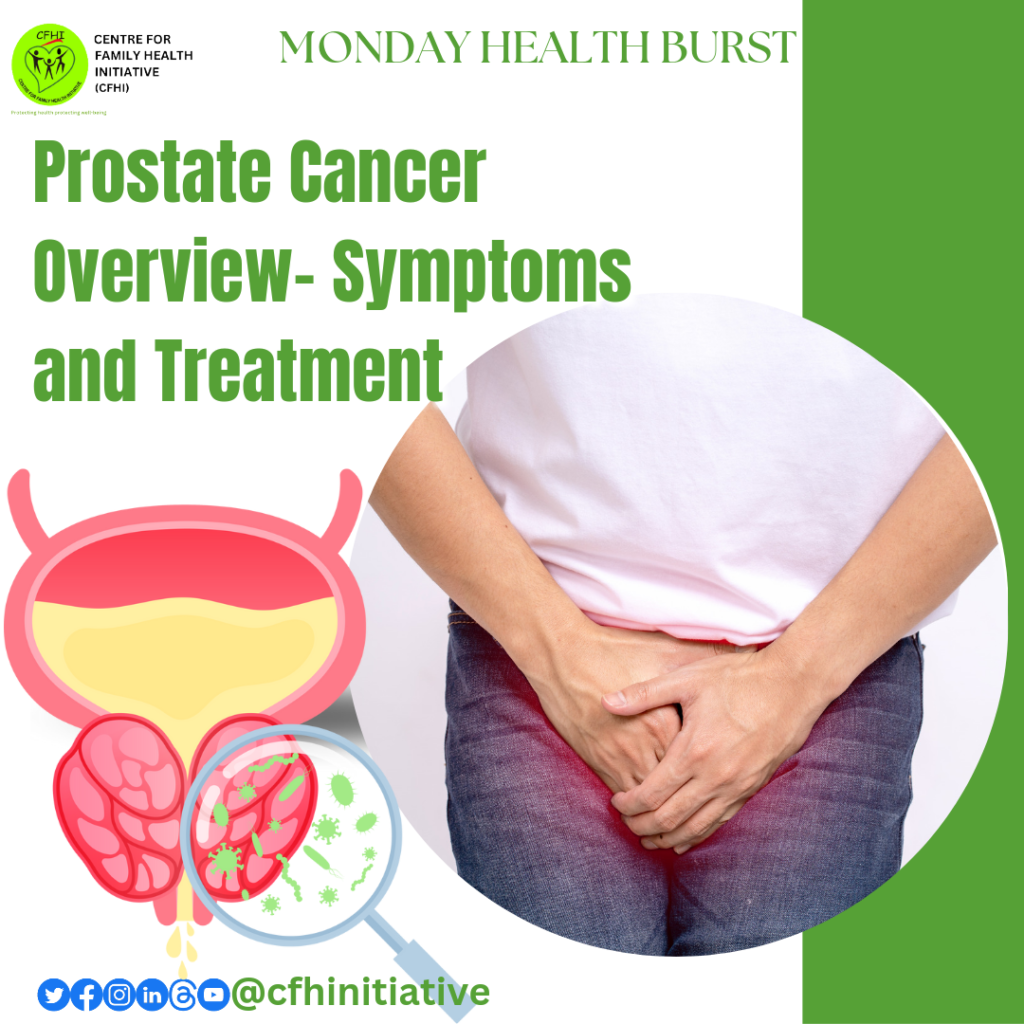MONDAY HEALTH BURST ON PROSTATE CANCER OVERVIEW-SYMPTOMS AND TREATMENT
In Nigeria, prostate cancer is the most commonly diagnosed malignancy among men and a hospital prevalence of 182.5 per 100,000 male admissions was recorded in 2010 in Osun State.1
Prostate cancer is a type of cancer that develops in the prostate. Males have a little gland called the prostate that resembles a walnut that secretes seminal fluid, which feeds and carries sperm.
In it’s early stage, prostate cancer may not show any symptoms, but may result in indications and symptoms like: difficulty urinating, a weaker stream of pee, blood in the urine, blood in the semen, bone pain, weight loss without attempting, and erectile dysfunction when the cancer becomes advanced.2
Options for treating prostate cancer rely on a number of variables, including how quickly the disease is developing, if it has spread, your general health, and the potential advantages or disadvantages of the treatment. Some of the treatment options include; surgery to remove the prostate, radiation therapy, freezing or heating prostate tissue, and hormone therapy.
Around 1 in 8 males will receive a diagnosis of prostate cancer at some point in their life. However, only 1 in 41 of these will die as a result. This is because treatment is effective, especially in the early stages. Routine screening enables doctors to detect many cases of prostate cancer before they spread.
Individuals and organizations are encouraged to create awareness of the need for routine check-ups to prevent advanced-stage prostate cancer.
Monday Health Burst is an initiative of CFHI to address issues of basic health concern. Join us every Monday on all our social media platforms for more episodes.
#MondayHealthBurst #MensHealth #ProstateCancer

References:
- https://afju.springeropen.com/articles/10.1186/s12301-019-0010-5
- https://www.mayoclinic.org/diseases-conditions/prostate-cancer/symptoms-causes/syc-20353087
MONDAY HEALTH BURST ON PROSTATE CANCER OVERVIEW-SYMPTOMS AND TREATMENT Read More »



